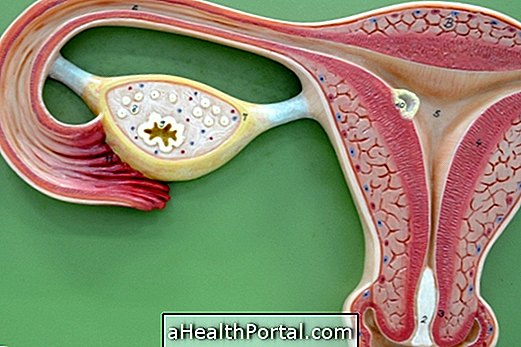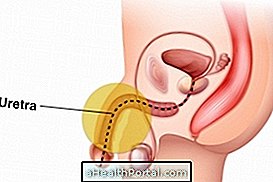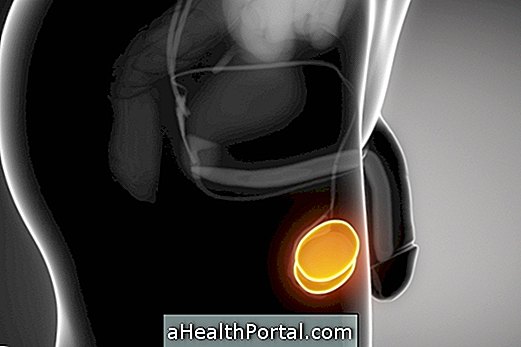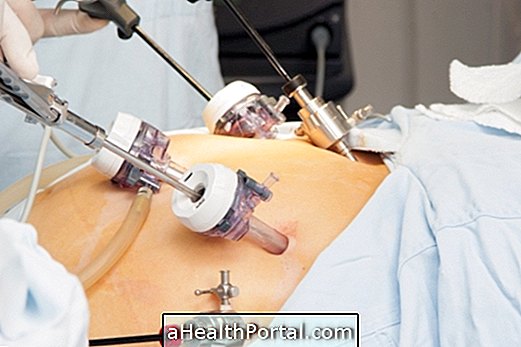Mirena is an intrauterine system that releases hormones, indicated to prevent pregnancy, for the treatment of heavy and exaggerated blood loss during the menstrual period or in case of endometriosis, when there is an exaggerated and abnormal growth of the tissue that lines the uterus, the endometrium. Read the package leaflet for this contraceptive method in Levonorgestrel - Mirena.
This "T" -shaped device must be inserted into the uterus, where it will gradually release the levonorgestrel hormone into the body. As Mirena is a device to put in the uterus is normal to arise doubts about its use, so here are some common questions:
1. How to put Mirena?
Mirena is a device that must be placed and removed by the gynecologist and inserted after a gynecological examination. In some cases this procedure can cause mild pain and discomfort at the time of cervix clamping.
In addition, Mirena should be inserted at the beginning of the menstrual period, preferably within the first 7 days. It is possible that the device causes some pain or discomfort during the first weeks of use, and the doctor should be consulted in case of severe or persistent pain.
2. How to know if Mirena is well placed?
Only the gynecologist can tell if Mirena is correctly inserted. During the specular examination performed in the office, the IUD is present in the vagina. Not always the woman can feel the IUD in the vagina because, but that does not mean that it is bad positioned.

3. How long can it be used?
Mirena can be used for 5 consecutive years, and by the end of this period the device must be removed by the doctor, and there is always the possibility of putting a new device.
After fitting the device, it is recommended to check that it is inserted correctly after 4 to 12 weeks.
4. Can menstruation change?
Mirena can alter the menstrual period because it is a contraceptive method that affects this cycle. During its use, small amounts of blood can be observed, depending on the body of each woman. In some cases, bleeding may be absent, and menstruation no longer exists.
When Mirena is removed from the body, since the hormone effect no longer exists, menstruation should return to normal.
Does Mirena impair sexual intercourse?
While using the device, it is not expected to interfere with sexual intercourse. If this happens because there is pain or because it is possible to feel the presence of the device, it is recommended that you stop the intimate contact and seek the doctor to verify that the device is correctly positioned.
In addition, after the placement of Mirena sexual intercourse is contraindicated within the first 24 hours, so that the body can adapt to the new contraceptive method.
6. Is it possible to use an internal tampon or menstrual cup?
While using Mirena the most appropriate is to use external absorbents, but the internal absorbents or menstrual cups can also be used as long as they are removed with care so as not to pull the wires from the device.
7. Can he go out alone?
Rarely. Mirena may be expelled from the body during the menstrual period. In these cases, it may be difficult to see that this has happened, so keep an eye on the menstrual flow, which may be a sign that it is no longer under the effect of the hormone.
8. Is it possible to become pregnant after removing the device?
Mirena is a device that does not interfere with fertility and so after withdrawal there is a chance of getting pregnant.
Therefore, after removing Mirena, it is recommended that you use other contraceptive methods to prevent pregnancy.
9. Does Mirena get fat?
As with other birth control pills, Mirena may lead to increased fluid retention as it is a progesterone-based contraceptive method.
10. Do I need to use other contraceptive methods, such as a condom?
Mirena works as a hormonal contraceptive method and only prevents pregnancy, not protecting the body against sexually transmitted diseases. Therefore, during the use of Mirena is recommended the use of barrier contraceptive methods such as condoms, which protect against diseases such as AIDS or gonorrhea, for example.
In addition, it is important to remember that it is possible to get pregnant with hormonal IUDs such as Mirena, but this is a rare event that happens when the device is out of position and can cause an ectopic pregnancy. Is it possible to get pregnant with an IUD?



























